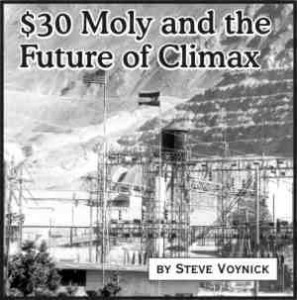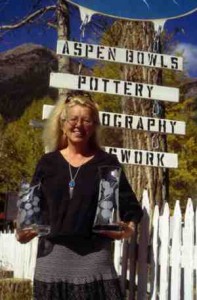Letter from Daniel G. Jennings
Rural Economies – July 2005 – Colorado Central Magazine
Editors:
The ongoing Real Estate Bubble exposes a very disturbing truth about America: All across our great nation real economies based upon the production of goods and services have been replaced by economic illusions rooted in hype, hysteria and speculation.
The Real Estate Bubble proves this more than anything else. Property values are skyrocketing in cities like New York (home of $1 million dollar one bedroom apartments) and San Francisco at a time when real jobs and industries have all but disappeared from those places. The factories in New York and San Francisco have closed and been converted into loft apartments. The loft apartments are being sold to people like writers, investment bankers, artists, journalists, stock brokers, real estate agents, literary agents, software writers, salesmen, investment analysts and so on, in other words people whose job is hyping up something so it can be sold to someone else at a higher price.
At the same time that vast amounts of questionable real estate are being sold to people whose wealth exists almost entirely on paper, average people struggle to survive. The factory jobs of the old economy at least gave the average worker enough money to buy a house and a car and provided workers and their families with health insurance, a decent pension and some savings. All the “new economy” generates are service jobs — like running a cash register at Starbucks — with minimal salaries and no benefits. Often the only people willing to fill these jobs are desperate immigrants.
Out in the hinterlands the economic picture is even more depressing, the fastest growing economy in the nation is in Las Vegas. A city based upon gambling and the proposition that the American people will always have unlimited amounts of disposable income to dump into slot machines. Another booming new city, Orlando, is based on the fantasy that every American family will always have $5,000 a year to blow on an annual trip to a theme park.
Here in my hometown of Denver, small rundown old houses are selling for $300,000 and one bedroom condominium apartments for $100,000 at a time when landlords are struggling to rent $400 and $500 a month apartments. Lots of new houses, new stores and new apartment houses are being built in Denver even though we have no new industries of any sort. The whole thing appears to be based on hype and speculation just like the tech bubble of the 1990s. Remember that? Actually it’s worse than the tech bubble; at least the new technology promised us a better future while the real estate boom just overvalues property.
The situation is even worse in the rural areas as a recent Denver Post article indicates. On June 2, 2005, Post reporter Dana Coffield profiled developments in the poor and remote Colorado town of La Veta. La Veta, a dying ranch town, is enjoying a sort of boom based on real estate hype and art. No new industry has moved to La Veta and no new jobs have been generated. Instead the town of 900 now boasts around 30 Realtors and such questionable new businesses as a quilting retreat center (I’m not kidding), the Bicycle Barn which rents sports equipment and sells espresso, an arts school, art galleries, antique stores and the La Veta Palooza Music Festival.
As someone who has lived in such an economy in Fairplay, a very similar town, I can testify that this economy is nothing but hype. No real jobs are created, and that makes it impossible for average people to earn a living in the community. The average people move out and most of the galleries and art businesses go bankrupt. Eventually the only businesses in town are real estate offices, bars and maybe a convenient store. When the bottom falls out of the real estate market, the town dies.
The horrendous thing is that what’s happening in La Veta is happening all over the United States. The economic boom is based upon rising real estate prices and nothing else. Related to this boom are all manner of questionable businesses ranging from big box stores to art galleries — businesses that exist to sell overpriced luxuries to paper millionaires. When the real estate market collapses these enterprises will be brought down with them because the paper will be worthless.
We can only hope that something real will replace this hyped up real estate boom and give America a real economy that can actually support our nation. For an economy has to run on something more than absurd fantasies of wealth based upon hype and speculation.
Daniel G. Jennings
Denver


